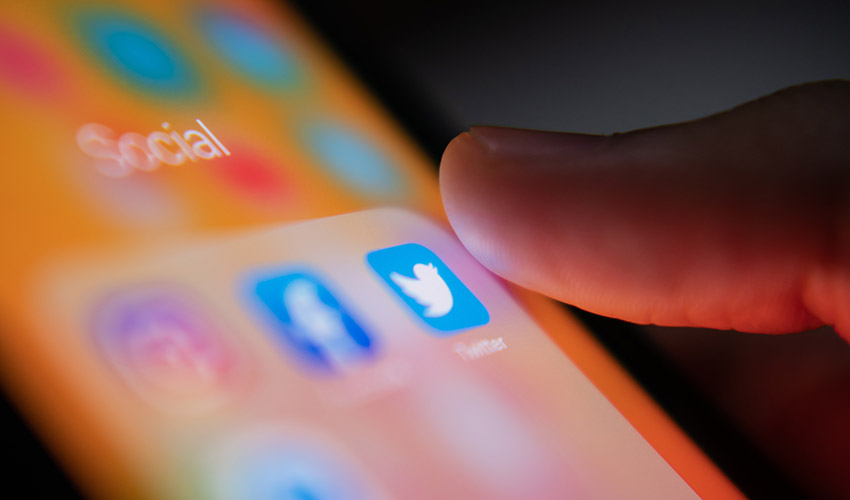New study on #MeToo movement reveals Twitter echo chamber

Professor returns to Twitter to understand how #MeToo influenced those outside of the movement
Two years ago, San Francisco State University Associate Professor of Economics Sepideh Modrek published a paper about the 2017 #MeToo movement. The viral hashtag emerged after celebrities started coming forward with sexual assault allegations against Hollywood mogul Harvey Weinstein and other well-known public figures. Modrek’s first paper was a snapshot of those early Twitter conversations of mostly women tweeting personal stories of sexual assault and voicing support for survivors. In a new paper published in the April 2021 Journal of Interpersonal Violence, Modrek returned to Twitter to examine how the movement affected those uninvolved in the initial online conversations. The answer, unfortunately: not much.
Social movements depend on growth and followers working in concert toward a common goal, Modrek says. So she wanted to see what, if any, influence #MeToo had on people who had nothing to do with the movement. Using machine learning, she and two undergraduate students, Jason Baik and Thet Nyein, sifted through Twitter data to see how unifying the #MeToo movement actually was.
Modrek’s team compared tweets from about 200 active Twitter users involved in the #MeToo movement with a similar-sized sampling of people uninvolved in the movement. They looked at their feeds six months before October 2017 (when #MeToo started) and six months after to see if and how the movement influenced their posts. They found that the Twitter users outside the movement talked briefly about sexual assault, but those mentions dwindled quickly. Conversely, the sample of survivors of sexual assault and supporters of #MeToo continued to talk about gender issues afterward.
Baik, who co-authored the paper with Modrek, was surprised by the results. “I thought that such a meaningful movement would have more of a measurable impact on how society constructively approaches these conversations,” he said. “Overall, [#MeToo] was a great way for people who have experienced sexual harassment or assault to share their stories and find a support network within the online community. However, the impact of the movement seems to be limited in terms of influencing the ongoing online conversation within the broader population.”
Nyein, a recent SF State graduate in statistics and the paper’s other co-author, anticipated the results. She’s been in her home country of Mynamar since last June and watched the recent military-led coup unfold. That's provided an interesting lens to re-examine the #MeToo movement and her research, she says. To start, social media is the only place she can get accurate news about what’s happening at home. There's also tremendous unity online and offline among the different groups protesting the military, which has made their movement effective, she says. In the U.S., the social movements are often fractured, and that can really limit the scope and reach, she adds.
Modrek watched her own Twitter feed explode with #MeToo tweets, but later recognized that not everybody on Twitter had the same experience. Her research confirmed that. “The societal takeaway is that one group was already interested in the topic, [then] #MeToo happened and they got hypersensitized to it. The media talked about it and it sounded like the world was going to change rapidly,” she said. “Then there’s this other group that sees #MeToo posts, maybe a few are empathetic and support to the cause, but then they stop talking about it, they don’t engage further. It’s a passing moment for them.”
Their research, while small in scale, showed that these curated worlds often give a false view of what’s happening more broadly and can be echo chambers of people voicing like-minded opinions. Where the movement fell short was in bringing in new people. “It’s really hard for an emotionally charged controversial issue to bridge networks and bring people together,” she said. “For social movements, you have to go one step further. You have to bring in people who are not affiliated—who might have a different point of view or even disagree. Otherwise, there is bound to be a backlash.”
Overall, this type of inquiry, examining how different people perceive and experience social movements online, has a lot of utility, Modrek says. It could be applied to a variety of movements like Make American Great Again (MAGA) movement or Black Lives Matter (BLM), she adds.
